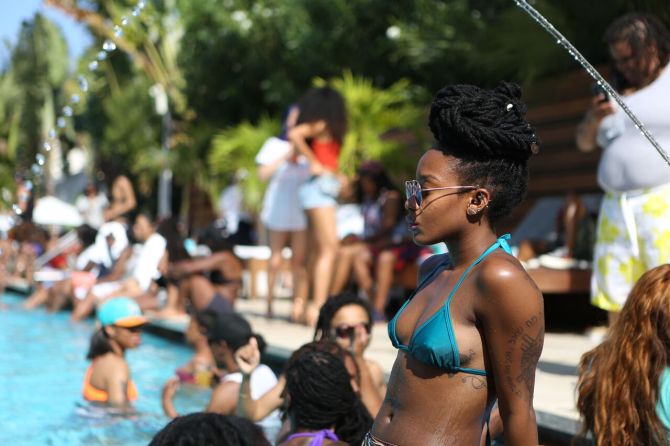Queer spaces are supposed to be safe spaces. Sadly, more often than not, queer spaces exclude certain groups of people, such as people of color or nonbinary people.
One group that is not just overlooked, but also made invisible, is disabled queer people.
If you asked most queer people if they discriminate, they would probably say, “Of course not! I welcome all people all the time.”
…But then no disabled people show up at their events.
It’s not because disabled queer people don’t exist – they definitely do – but it’s because these spaces, and the people in them, do not welcome them.
Many queer spaces just aren’t accessible.
Your building has an elevator for people in a wheelchair. Great! But that’s just the beginning. Making a space truly accessible for all people requires a lot of work, so roll up your flannel sleeves.
Are the bathrooms handicap accessible? Are signs written in braille? Does anyone at the meeting know American Sign Language? Are there several options for foods – not just vegetarian, but also gluten-free for people with Celiac disease, or sugar-free for people with diabetes?
The extra effort goes a long way. It makes the difference between someone feeling welcome and someone being unable to participate.
Many able-bodied people are ableist without knowing it.
If you’re queer, you probably bristle when you hear a homophobic or biphobic comment, even if the comment wasn’t meant to be offensive. It’s the same way with ableism: you might be offending someone or promoting ableist viewpoints without realizing it.
Watch your language to make sure you’re not using slurs, such as “retarded” or “crippled” (and even words like “dumb,” “lame” or “stupid” have their roots in ableism). And avoid making light of mental illness, such as saying that you are “so OCD” if you don’t actually have Obsessive-Compulsive Disorder, or saying that the weather is schizophrenic just because it changes a lot.
At the same time, be mindful of microaggressions. Don’t make a disabled person feel like they’re missing out or imply that you pity them. Don’t speak over them or for them. Don’t ask intrusive questions. And don’t assume what they can and cannot do.
Many able-bodied people fetishize disabled people – or write them off completely.
When you think about hot queer women, you probably think Samira Wiley, Ruby Rose, Kristen Stewart or Kate McKinnon. You probably think about the hot girl who sits behind you in Swahili class or the really attractive barista at your favorite bar. Chances are, you picture someone able-bodied.
Disabled queer writer Nik Moreno says, “Being a wheelchair user, I tend to stick out a lot. Folks rarely find me romantically desirable, usually because they see the chair before me… We’re either seen as disgusting or not attractive, and people try to pass it off as a preference.”
What’s the solution? Don’t try to date someone just because they’re disabled, because that fetishizes their disability. But don’t write someone off just because they have a disability. Realize that your “preferences” just mask your bigotry.
For more about the intersection of queerness and disability, check out this three part series.


